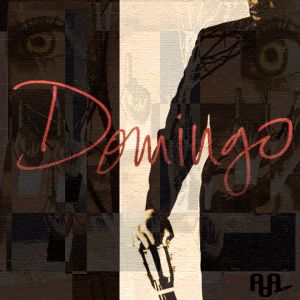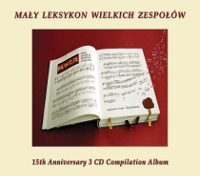Domingo Candelario started his musical career when Yusa, who at that time had just finished studying at music school and was playing bass in Cuba's first all-female jazz band, came to see one of his plays at a theatre in La Habana Vieja (the Havana old town). After the performance, she stayed behind to congratulate him, and they soon became inseparable. Domingo gave her songs, and in turn she gave him his first guitar. They quickly developed a theatrical performance where they used their bodies and voices as percussion instruments and beatboxes, then picked up regular instruments and went back to singing. From hanging out in his mum's kitchen rehearsing while she cooked food, to singing at friends’ parties, to playing in France at the Palais des Sports in front of five thousand took just a few months. An important feature of Cuban music was the Nueva Trova movement and Domingo is often said to be a key player, although he doesn’t see it that way, as it was from the Sixties, the generation before his. The movement was unique as it concentrated only on a solo artist, a guitar and a songwriter, rather than a band, which was the norm until that point. Nueva Trova means a new way, and at that time in Cuba’s history, was involved in the socialist and communist revolution; it was very political. Nueva Trova inspired his generation of songwriters, giving a voice to stand alone with a guitar and express the thoughts within their hearts, although for some it was to be more of a free spirit without the political ideology. As Domingo says, “To be compared to the great songwriters of that generation is of course very flattering. It still continually inspires me to strive for that powerful stage presence, just one man, a voice, and a guitar.”
Although there is always a very Cuban base to his music, Domingo has covered many different styles, as he transcends culture and language: music is about expressing emotions honestly and he tries to be as unique as he can. As a child, his parents listened to a lot of Brazilian music, and he was fascinated by the way they used harmonies: it was so beautifully put together, so soft and in connection with the soul. His favourite performers are Stevie Wonder (US), Sting (UK), Chico Duarte, Djavan, Caetano Velozo (all Brazil) and Jose Antonio Mendez (Cuba), and he feels most at home when he can express his music to others in the same way that those musicians transcend language and cultural barriers. “For me, coming from a theatre background, musically I will use whatever style best communicates the feeling of my lyrics even for somebody who doesn't understand the language, so whether that is funk, soul, Latin, Cuban rhythm or a ballad.”
‘Revolucion’ is a departure for Domingo in many ways, as it was recorded in London where he now resides, and not Cuba. Consequently, his new experiences as an immigrant, living far away from his home with a totally different culture, weather and lifestyle all had a major impact. “It was in parts melancholy with missing my family, my friends and my Cuban lifestyle, along with a desire to express a new version of me. From that point, my music was more open to new influences. It's not the same as writing songs on the Malecon in Havana or around friends and family... I wanted to write songs which would affect a new and global audience. The melody became as important or more important than the lyrics, I had to find a way to bring the poetry to life in a way that would touch people who didn't understand the language.”
With a career that has had highlights such as opening for Latin Grammy award winning artist Andres Cepeda and for Amy Winehouse, headlining a university tour around England with just a guitar for a full set performance and performing at Ronnie Scotts, Domingo is now looking forward to finding a connection with a New Zealand audience on tour. This is a great opportunity for him to share his culture and music with a country which hasn't had much exposure to a Latino artist of his stature. This complex album can appear to be light and flowing, but it is also full of hidden depths, with a great deal to interest those who already know Domingo, or who have already enjoyed the wonderful world of Cuban music, as well as those who are new to the genre. Put it on, relax, and fall into a world which is full of vitality and presence.








